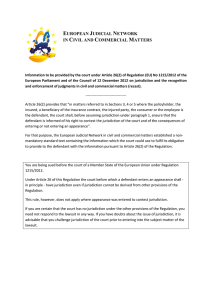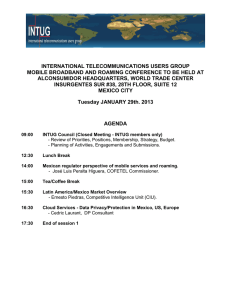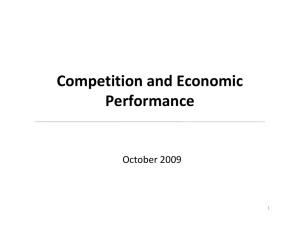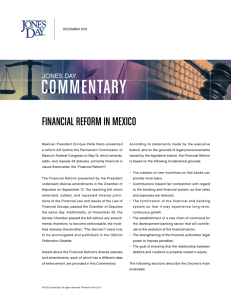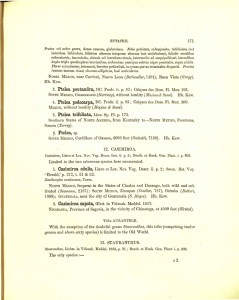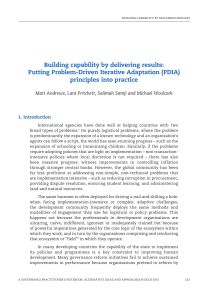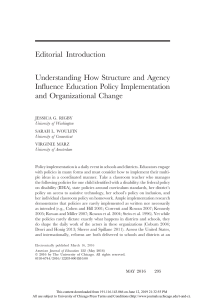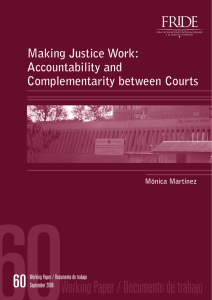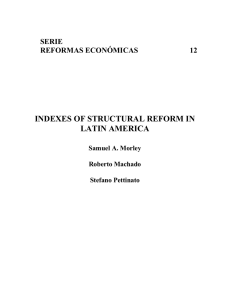MILITARY JURISDICTION REFORMS IN MEXICO
Anuncio
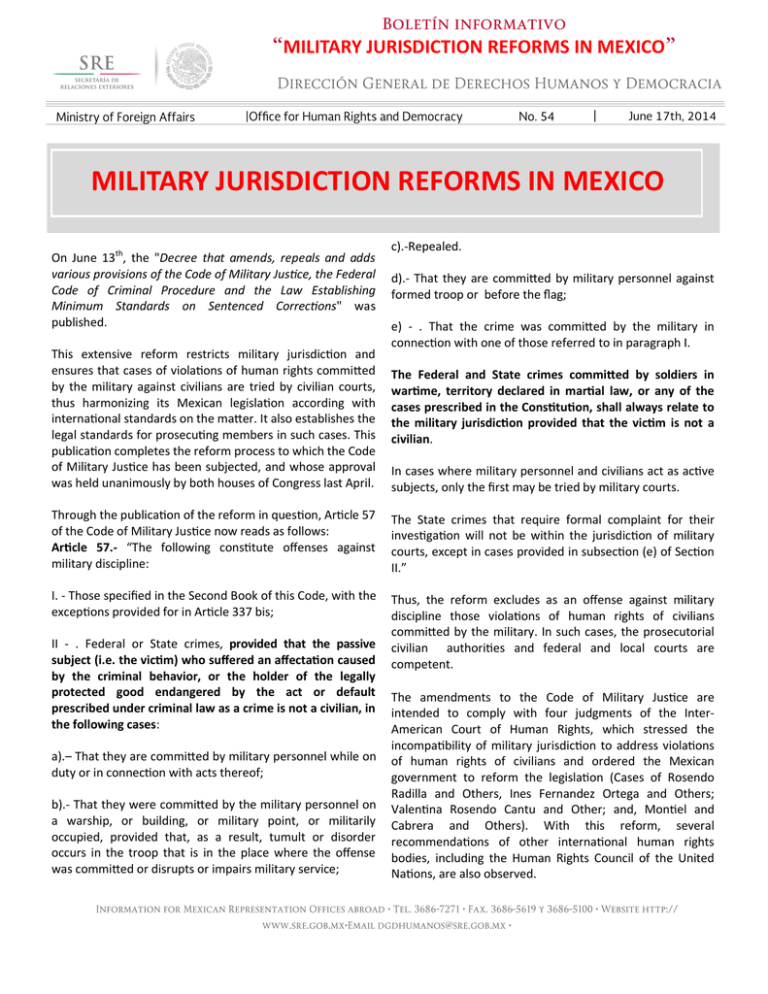
MILITARY JURISDICTION REFORMS IN MEXICO MILITARY JURISDICTION REFORMS IN MEXICO On June 13th, the "Decree that amends, repeals and adds various provisions of the Code of Military Justice, the Federal Code of Criminal Procedure and the Law Establishing Minimum Standards on Sentenced Corrections" was published. This extensive reform restricts military jurisdiction and ensures that cases of violations of human rights committed by the military against civilians are tried by civilian courts, thus harmonizing its Mexican legislation according with international standards on the matter. It also establishes the legal standards for prosecuting members in such cases. This publication completes the reform process to which the Code of Military Justice has been subjected, and whose approval was held unanimously by both houses of Congress last April. c).-Repealed. d).- That they are committed by military personnel against formed troop or before the flag; e) - . That the crime was committed by the military in connection with one of those referred to in paragraph I. The Federal and State crimes committed by soldiers in wartime, territory declared in martial law, or any of the cases prescribed in the Constitution, shall always relate to the military jurisdiction provided that the victim is not a civilian. In cases where military personnel and civilians act as active subjects, only the first may be tried by military courts. Through the publication of the reform in question, Article 57 of the Code of Military Justice now reads as follows: Article 57.- “The following constitute offenses against military discipline: The State crimes that require formal complaint for their investigation will not be within the jurisdiction of military courts, except in cases provided in subsection (e) of Section II.” I. - Those specified in the Second Book of this Code, with the exceptions provided for in Article 337 bis; Thus, the reform excludes as an offense against military discipline those violations of human rights of civilians committed by the military. In such cases, the prosecutorial civilian authorities and federal and local courts are competent. II - . Federal or State crimes, provided that the passive subject (i.e. the victim) who suffered an affectation caused by the criminal behavior, or the holder of the legally protected good endangered by the act or default prescribed under criminal law as a crime is not a civilian, in the following cases: a).– That they are committed by military personnel while on duty or in connection with acts thereof; b).- That they were committed by the military personnel on a warship, or building, or military point, or militarily occupied, provided that, as a result, tumult or disorder occurs in the troop that is in the place where the offense was committed or disrupts or impairs military service; The amendments to the Code of Military Justice are intended to comply with four judgments of the InterAmerican Court of Human Rights, which stressed the incompatibility of military jurisdiction to address violations of human rights of civilians and ordered the Mexican government to reform the legislation (Cases of Rosendo Radilla and Others, Ines Fernandez Ortega and Others; Valentina Rosendo Cantu and Other; and, Montiel and Cabrera and Others). With this reform, several recommendations of other international human rights bodies, including the Human Rights Council of the United Nations, are also observed. MILITARY JURISDICTION REFORMS IN MEXICO MILITARY JUSRIDICTION REFORMS IN MEXICO It is important to emphasize that prior to the adoption of the aforementioned amendments, the Mexican Supreme Court of Justice issued criteria that restricted military jurisdiction for crimes against military discipline only in cases not involving civilians. Also, the Office of Military Justice has been following the practice of declining jurisdiction in favor of the civilian authorities. Regarding the entry into force of the new provisions, one of the transitory articles of the Decree provides that preliminary investigations for alleged crimes that do not undermine military discipline that were started before the entry into force of the amendment, shall be declined in favor of civilian authorities within 30 days after the entry into force of the reform. This reform constitutes an essential aspect of the developments on human rights pursued by the government of President Enrique Peña Nieto in order to harmonize secondary legislation with the constitutional reform of human rights of 2011, and with Mexico’s commitments pursuant to international human rights treaties to which it is a Party. With this reform, Mexico reaffirms its commitment to ensure full respect for human rights in the country. Reference: Decree that amends, repeals and adds various provisions of the Code of Military Justice, the Federal Code of Criminal Procedure and the Law Establishing Minimum Standards on Sentenced Corrections: http://www.dof.gob.mx/nota_detalle.php? codigo=5348649&fecha=13/06/2014 Informative newsletter number 45 “Congress Approves Amendments to Article 57 of the Code of Military Justice” Informative newsletter number 32. "The human rights policy of Mexico" on the withdrawal of reservations to international human rights instruments.
